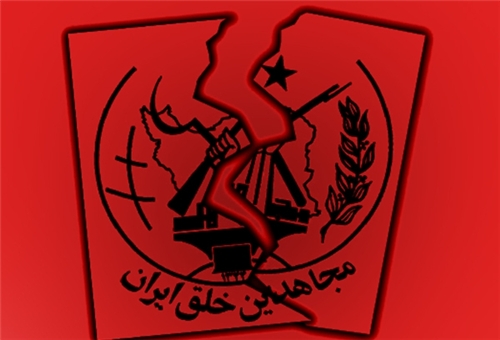 TEHRAN (FNA)- Iranian Foreign Ministry Spokeswoman Marziyeh Afkham said Tehran is resolved to extradite members of the Mojahedin-e Khalq Organization (MKO, also known as MEK, PMOI and NCR) and is pursuing the issue through international bodies.
TEHRAN (FNA)- Iranian Foreign Ministry Spokeswoman Marziyeh Afkham said Tehran is resolved to extradite members of the Mojahedin-e Khalq Organization (MKO, also known as MEK, PMOI and NCR) and is pursuing the issue through international bodies.
"There are talks between the Iranian and Iraqi officials on the issue of Monafeqin (hypocrites as MKO members are called in Iran); the crimes of this grouplet are known to everyone and they are a terrorist group which has killed 17,000 Iranians. There are numerous documents existing in this regard and we have always urged the Iraqi government to extradite them to Iran," Afkham told reporters in Tehran on Tuesday.
Noting that Iran is in talks with the international bodies to extradite the MKO members to Iran, she said, "Meantime, we have announced that those who have not committed any crimes, armed attacks and murder can return to the country and their cases will be studied."
In relevant remarks on Sunday, Iranian Judiciary Chief Sadeq Amoli Larijani in a meeting with his Iraqi counterpart Medhat Al-Mahmoud called on Baghdad to extradite the members of the MKO to stand a fair tribunal in Tehran.
"Most of these (MKO) people have admitted to their crimes and we expect the friendly and brotherly country of Iraq to extradite them to Iran within a legal framework to undergo a fair trial," Amoli Larijani said during the meeting.
He reminded that based on proof and evidence, the MKO members are responsible for the assassination of more than 17,000 Iranian citizens.
Also after the meeting with the Iraqi judiciary chief, Amoli Larijani told reporters that he has rigidly asked the Al-Mahmoud to prepare the grounds for the extradition of the MKO members to Iran to account for their crimes against the Iranians.
In mid-April, Iranian Justice Minister Mostafa Pour Mohammadi and his Iraqi counterpart Hassan al-Shammari in a meeting in Baghdad explored avenues for bolstering and reinvigorating mutual cooperation.
During the meeting, the Iranian and Iraqi justice ministers signed a memorandum of understating (MoU) on extradition of prisoners. According to the agreement, the Iranian and Iraqi justice ministries would set up a joint committee at the earliest to examine the situation of the prisoners and prepare the ground for their extradition.
Many of the MKO members have abandoned the terrorist organization while most of those still remaining in the grouplet are said to be willing to quit but are under pressure and torture not to do so.
A recent Human Rights Watch report accused the MKO of running prison camps in Iraq and committing human rights violations.
According to the Human Rights Watch report, the outlawed group puts defectors under torture and jail terms.
The MKO, founded in the 1960s, blended elements of Islamism and Stalinism and participated in the overthrow of the US-backed Shah of Iran in 1979. Ahead of the revolution, the MKO conducted attacks and assassinations against both Iranian and Western targets.
The group started assassination of the citizens and officials after the revolution in a bid to take control of the newly-established Islamic Republic. It killed several of Iran's new leaders in the early years after the revolution, including the then President, Mohammad Ali Rajayee, Prime Minister, Mohammad Javad Bahonar and the Judiciary Chief, Mohammad Hossein Beheshti who was killed in bomb attacks by MKO members in 1981.
The group fled to Iraq in 1986, where it was protected by Saddam Hussein and where it helped the Iraqi dictator suppress Shiite and Kurd uprisings in the country.
The terrorist group joined Saddam's army during the Iraqi imposed war on Iran (1980-1988) and helped Saddam and killed thousands of Iranian civilians and soldiers during the US-backed Iraqi imposed war on Iran.
Since the 2003 US invasion of Iraq, the group, which now adheres to a pro-free-market philosophy, has been strongly backed by neo-conservatives in the United States, who argued for the MKO to be taken off the US terror list.
In September 2012, the last groups of the MKO terrorists left Camp Ashraf, their main training center in Iraq's Diyala province. They have been transferred to Camp Liberty transient facility near Baghdad.
By Fars News Agency
The Iran Project is not responsible for the content of quoted articles.

 QR code
QR code